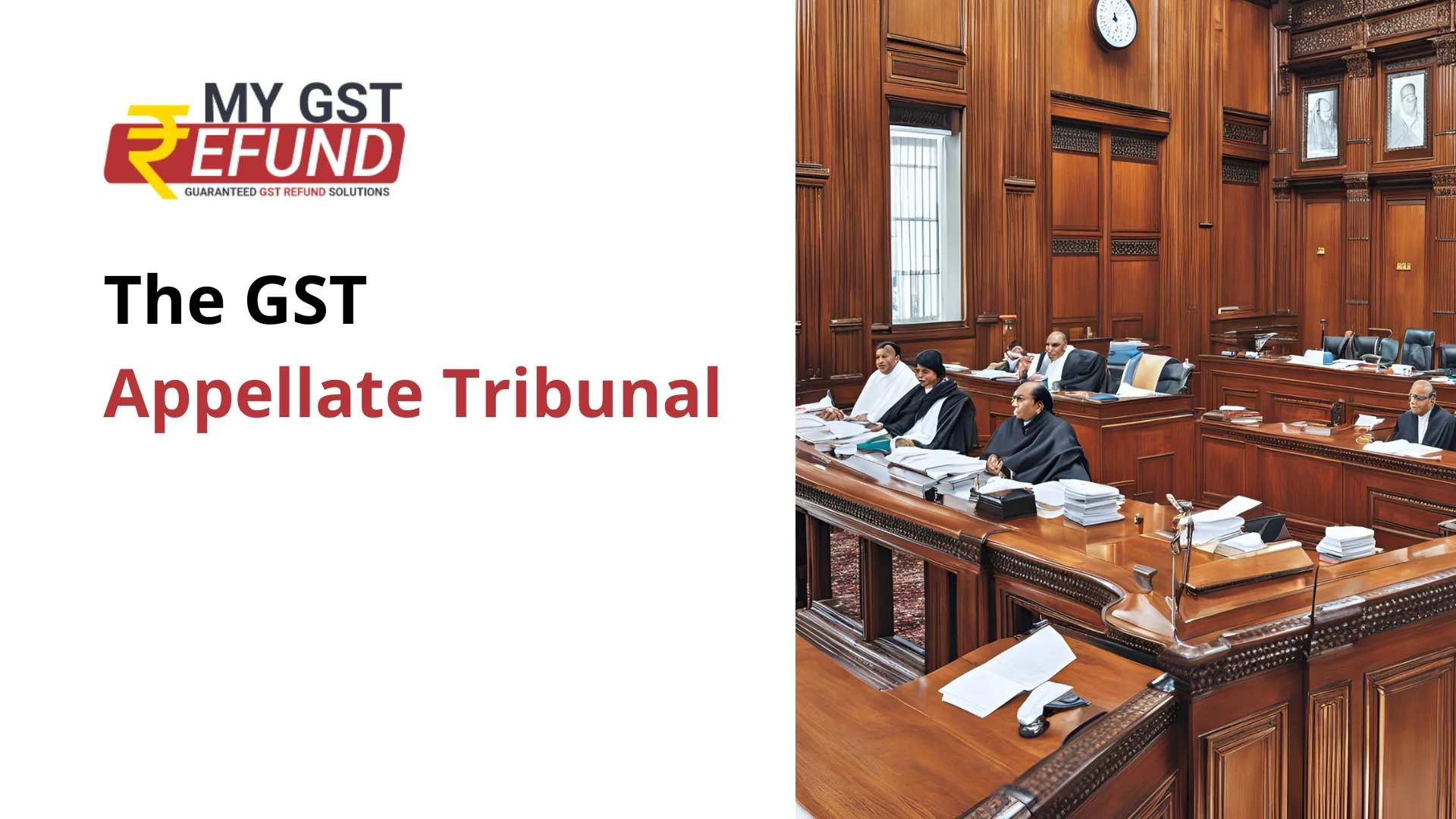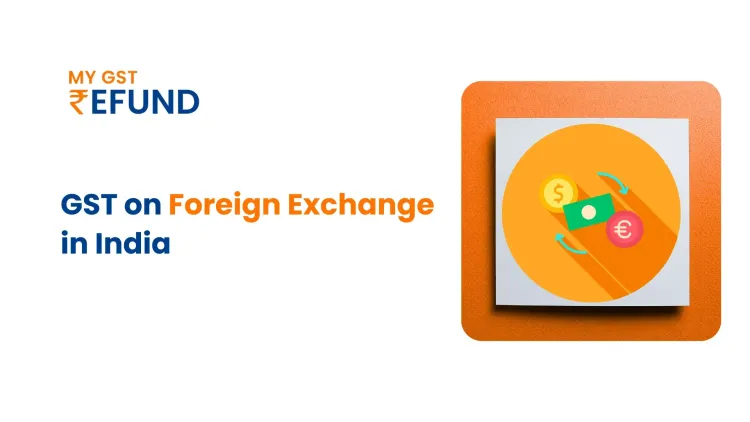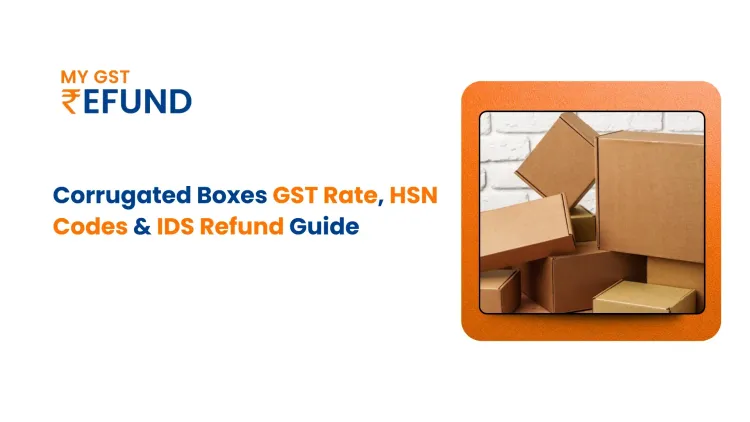The GST Appellate Tribunal is a quasi-judicial body established to resolve disputes arising between businesses, individuals, and the government over GST laws. It acts as an appellate authority hearing appeals against decisions of lower authorities. The hierarchy for appeals under GST is as follows:
- Adjudicating Authority
- Appellate Authority
- Appellate Tribunal
- High Court
- Supreme Court
If dissatisfied with a decision from a lower court, one can appeal to a higher court in this sequence.
What is the GST Appellate Tribunal ?
The GST Appellate Tribunal (GSTAT) is the second appeal forum under GST. It handles appeals against orders of First Appellate Authorities. It also serves as the first common forum to resolve disputes between the centre and the states. The Appellate Tribunal aims to ensure consistency in resolving GST-related disputes.
Why was there a need for the GST Appellate Tribunal?
In the absence of GST Appellate Tribunals, taxpayers often turn to High Courts using writ jurisdiction for relief. High Courts may lack specialised benches for GST matters and face delays due to case backlogs. Since GST was introduced in 2017, there have been differing interpretations of the GST law between taxpayers and authorities, resulting in disputes primarily about credits, taxes, refunds, classification, and valuation.
The establishment of the GST Appellate Tribunal (GSTAT) has been eagerly awaited to speed up the resolution of these disputes. Without a functioning tribunal, aggrieved taxpayers have no choice but to wait for justice, while revenue authorities vigorously enforce their decisions.
GST Appellate Tribunal Benefits
- The GST Appellate Tribunal (GSTAT) offers a more adaptable and cost-effective alternative to regular courts, ensuring faster justice delivery. Its procedures are straightforward, making it widely favored for resolving disputes.
- GSTAT will aid both the Union and State Governments in reducing conflicts and ensuring consistent dispute resolution. GST was introduced with the goal of simplifying taxation under the One Nation, One Tax initiative, enhancing compliance for citizens. Establishing GSTAT institutionalised the government’s citizen-centric approach to taxation.
- The creation of GSTAT demonstrates India's efforts to become more business-friendly and a preferred global trade destination. It is expected to provide quick and efficient resolution of GST disputes, bringing relief to businesses.
- Establishing GSTAT is set to improve the ease of doing business in India, making it a more attractive place for trade and commerce.
Powers of the Appellate Tribunal under GST
According to the Code of Civil Procedure, 1908, the GST Appellate Tribunal possesses the same powers as a court and is considered a Civil Court for trial purposes. The Tribunal is empowered to hear appeals, issue orders and directives, including for the recovery of dues, enforce its rulings, and rectify errors. It also has authority to levy penalties, revoke or cancel registrations, and take any other actions needed to ensure compliance with GST laws.
Appealing to the GST Appellate Tribunal (GSTAT)
Any person dissatisfied with the decision of the First Appellate Authority can appeal for a review to the GST Appellate Tribunal (Appellate Tribunal). This appeal must be filed within 3 months from the date of the First Appellate Authority's decision using FORM GST APL-05 and accompanied by applicable fees.
When filing the appeal, the appellant must include grounds for appeal, a verification form, and submit a hard copy of the appeal along with a certified copy of the First Appellate Authority's decision within 7 days of filing electronically. Upon filing, an acknowledgment will be issued in Form GST APL 02, which includes the appeal number.
Procedure for filing an appeal with the Appellate Tribunal under GST
The process for appealing to the Appellate Tribunal involves the following steps:
1. The aggrieved party must submit a written appeal to the Tribunal within 30 days of receiving the order, decision, or direction from the lower authority.
2. The appeal must include a copy of the order, decision, or direction being appealed against and the required fees.
3. The Tribunal will issue a notice to the respondent, who must respond within 30 days.
4. A hearing may be conducted by the Tribunal to resolve the dispute, allowing both parties to present their arguments and evidence.
5. The Tribunal will issue an order or direction to settle the dispute.
Fees: The fees for the appeal consist of the full amount of tax, interest, fine, and/or penalty admitted by the appellant in the original order, plus an additional 20% of the total disputed tax amount.
Conclusion
In conclusion, the GST Appellate Tribunal (GSTAT) plays a crucial role in efficiently resolving disputes under GST. It ensures fair and timely justice for taxpayers and encourages adherence to GST laws. GSTAT simplifies the appeals process and contributes to India's goal of being a business-friendly environment, making it an appealing destination for global trade and commerce.
FAQs
Q.1 What is the time limit for GST appeal to tribunal ?
Ans. They must appeal within 3 months from the date of appeal along with the Form GST APL-05 and fees.
Q.2 What is the need for the GST Appellate Tribunal ?
Ans. The tribunal is expected to help in faster and more effective resolution to GST disputes.
Q.3 What is the monetary limit for appeal in GST ?
Ans. The maximum amount for filing appeal with the appellate authority has been reduced from Rs. 25 crores CGST and Rs. 25 crores SGST to Rs. 20 crores CGST and Rs. 20 crores SGST
Also Read- Central Board Of Direct Tax[CBDT]
Related Posts








